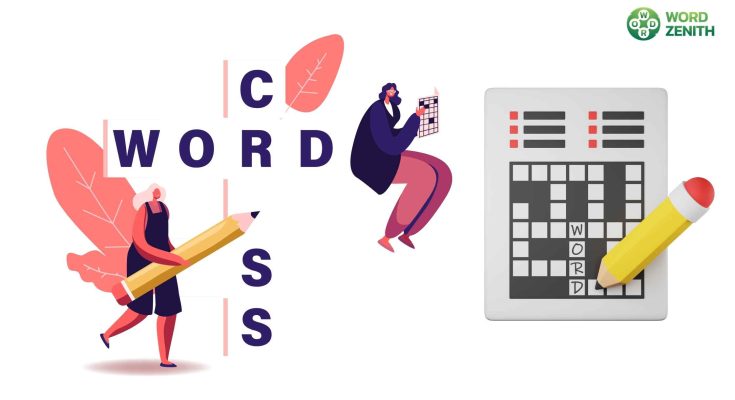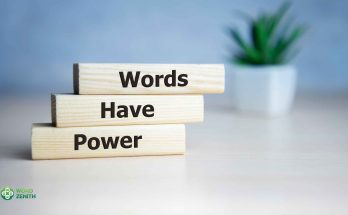In the field of education and cognitive development, dyslexia and other learning disabilities have long posed significant challenges. A person’s ability to read, spell, and write is affected by dyslexia thereby leading to frustration and hampering academic progress. Nevertheless, recent studies indicate that word games can be used as valuable tools in assisting people with dyslexia as well as other learning disabilities. This paper will explore the science behind dyslexia, how word games can help overcome its challenges, and practical applications with considerations for using them in educational settings.
Cognitive Perspective on Understanding Dyslexia
Dyslexia is a neurological condition that impairs the brain’s processing of written language. It is exhibited by poor spelling skills coupled with inaccurate or slow word recognition abilities among others. Although each individual may manifest different signs of this disorder, letter reversals, difficulty rhyming words together correctly are common symptoms while reading comprehension poses considerable problems too.
From a cognitive viewpoint phonological processing which involves recognizing sounds made in spoken language seems to be defective among those suffering from this condition mostly known as dyslexics. According to research findings some persons affected by dyslexia fail to blend these phonemes into understandable words after breaking them down while others cannot even segment such units at all i.e., they see everything like one big sound without any breaks in between. Moreover there are weaknesses associated with working memory capacity coupled with attentional resources allocation plus visual processing speed that further compound difficulties faced by individuals having dysgraphia during schooling years.
Role of Word Games in Dyslexia Intervention
These language-learning approaches are very exciting and interactive, which is why word games work so well for people with dyslexia. Word games provide a way to engage with words that are playful and non-threatening, while at the same time helping to build necessary reading skills and reducing the kinds of frustrations often encountered during traditional reading drills. There are several reasons why word games can be effective in interventions for individuals diagnosed with dyslexia:
- Multisensory Input: Many word games include auditory, visual and hands-on parts thus creating multiple channels through which learning can take place. This approach works best for people who have dyslexia as they get another opportunity to internalize language concepts using different modes.
- Awareness of Phonemes: Games that deal with phonemic awareness – knowing how sounds combine into words- play an important role in strengthening this base among individuals suffering from dyslexia. They may involve activities like rhyming contests, blending sounds, or even segmenting them into separate units.
- Sight Skills Development: Various word games like crossword puzzles or word searches help improve sight skills in those diagnosed with dyslexia. Participants have to visually scan through grids identifying letters/words which contributes towards better letter recognition together with visual focus.
- Learning within Contexts: Frequently, words are presented in context during word games thereby enabling players encounter vocabulary items meaningfully. Such an approach towards contextual learning can greatly assist someone understand what he/she reads because now persons having dyslexia start associating words with their semantic meanings and usage patterns.
- Motivation plus Involvement: The fun factor associated with playing these types of games motivates students who struggle most with literacy such as those having dyslexia thus making them not give up easily on reading efforts. Word games help struggling readers feel better about themselves by turning lessons into enjoyable experiences rather than chores.
Applications & Some Practicalities
One must carefully plan for and consider individual preferences as well as needs before incorporating word games into a program meant to address dyslexia. Below are some strategies that can be used by teachers, therapists or parents in order to ensure maximum benefits from using word games as interventions for learners with dyslexia:
- Personalized Game Selection: Choose such word games which are suitable for the specific person’s abilities and requirements. While deciding on the game to be played one should keep in mind factors like reading level, attention span or areas of difficulty (e.g., phonological awareness, sight word recognition).
- Step-by-Step Advancement: Start off with simple literacy skills related tasks and increase their complexity gradually as an individual advances through them. This way learners will always feel challenged enough but not overwhelmed since new information will be built upon what they already know.
- One-On-One Teaching: During any activity involving words, provide personal assistance by adjusting instructions towards the more preferred learning style of each student separately. Feedback given should also reflect this idea, every comment made must support a positive attitude towards gaining knowledge.
- Connection With School Program: Word games can serve as an excellent reinforcement tool during wider reading lessons held at school. They may be introduced into lesson plans themselves or used within small groups which work independently from other classmates thus allowing continuous practice development.
- Measuring Results: Regularly check students’ progress so as to evaluate effectiveness of interventions based on playing with words. It is important here to track improvements in literacy skills over time along with duration of concentration shown during activities like these ones. Instructional methods might need some modifications then.
- Cooperation Between Specialists: Speech-language pathologists, special education teachers together with other professionals should collaborate closely where comprehensive intervention plans are concerned as far as people suffering from dyslexia are involved. Outside opinions ought to be sought after too in order that evidence-based practices could be maintained while selecting appropriate game types according to current best intervention guidelines.
Read More: Word Games and the Development of Critical Thinking Skills in Higher Education
In conclusion
It is evident that word games can greatly contribute towards helping individuals who have dyslexia and other learning disabilities. By making use of word games’ interactive and multisensory nature, educators, therapists as well as parents can aid struggling readers in acquiring necessary literacy skills while keeping them motivated throughout the process. However, this will only happen if we are careful to select the right ones, implement them thoughtfully, hence monitor their impact continuously since they might become key factors behind academic success among such students. As we search for new ways of dealing with dyslexia therefore it becomes clear that nothing else comes closer than word games when it comes to enabling people realize their full linguistic potential thus leading richer lives too.




